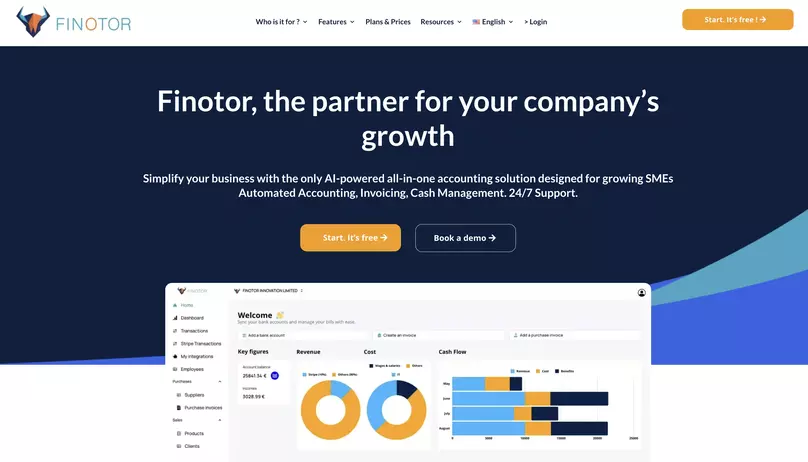Contents
Understanding VAT and Its Importance for Businesses
What is VAT and How Does It Work?
Value Added Tax (VAT) is a consumption tax placed on a product whenever value is added at each stage of the supply chain, from production to the point of sale. The amount of VAT that the user pays is on the cost of the product, less any of the costs of materials used in the product that have already been taxed. VAT is an indirect tax, meaning it’s collected by one entity in the chain of production but it’s ultimately paid by the consumer. It is a key component of the revenue system in over 160 countries, and understanding its dynamics is crucial for businesses. More information on VAT and its function in business can be found here.
The Role of VAT in Business Operations
VAT has a significant impact on business operations. It affects pricing, cash flow, and accounting practices. As businesses collect VAT on behalf of the government, they need to ensure accurate tax computations and compliance with the respective tax authorities. Proper handling of VAT aids in the prevention of tax evasion and ensures a steady revenue stream for governments. Businesses that understand the intricacies of VAT can use this knowledge to their advantage, optimizing their pricing strategy and gaining competitive advantages. For insights into the role of VAT within the European Union, visit the EU’s VAT Identification Numbers page.
Advantages of Registering for a VAT Number
Registering for a VAT number can provide several advantages to businesses. It enhances the business’s credibility and shows that the company is government compliant. Additionally, businesses can claim back VAT on goods and services purchased for company use, potentially leading to significant savings. Moreover, having a VAT number is often a prerequisite for doing business with other VAT-registered entities, opening opportunities for B2B relationships. A VAT registration also allows businesses to access VAT refund mechanisms when trading internationally. To streamline the management of VAT and other financial processes, companies like Finotor offer comprehensive solutions that can be explored at https://finotor.com.
Eligibility Criteria for VAT Registration
Determining Your Business’s Requirement to Register for VAT
Whether or not a business must register for VAT depends on a variety of factors, including total taxable sales, the nature of goods or services provided, and the geographical location of the business. Mandatory VAT registration thresholds vary by country. It is crucial for businesses to evaluate their obligation to register for VAT to prevent any legal repercussions and fines.
Thresholds and Exceptions in VAT Registration
Each country sets its own thresholds for VAT registration, and some may offer exceptions for small businesses or specific types of goods and services. It is important to understand the specific rules that apply to your business to ensure compliance and to benefit from any available exceptions or simplified schemes.
Compulsory vs. Voluntary VAT Registration – Which Is Right for You?
Compulsory VAT registration is dictated by surpassing the threshold limit within a country or providing certain types of services. Voluntary VAT registration can be a strategic decision for businesses that have not surpassed the threshold. It can be beneficial for early reclaiming of VAT on start-up costs or for businesses that primarily deal with VAT-registered companies. The choice between compulsory and voluntary VAT registration should be based on a strategic financial analysis.
The VAT Registration Process Step by Step
Gathering Necessary Documentation for VAT Registration
Before beginning the VAT registration process, businesses need to gather all the necessary documentation. This typically includes business identification and verification of business activities, details of company directors or partners, and proof of business transactions.
Completing the VAT Registration Form
Filling out the VAT registration form is the next step. This form varies from country to country but generally requires detailed business information. It is imperative to provide accurate and comprehensive information to avoid processing delays or rejections.
What to Expect After Submitting Your VAT Registration
After submitting the VAT registration, businesses can expect a review period by the tax authority. Upon approval, a VAT number will be issued. Businesses should then update their invoicing and accounting systems to reflect their VAT status and ensure compliance with VAT collection and reporting requirements.
After Obtaining Your VAT Number – Next Steps
How to Integrate Your VAT Number into Your Business Practices
Once a VAT number is obtained, integrating it into business practices involves updating invoices, informing clients, and adjusting accounting practices. It is important to ensure that all transactions are recorded accurately for VAT reporting purposes.
Understanding VAT Returns and Record-Keeping
Understanding VAT returns and maintaining proper records are essential for compliance. VAT returns are typically filed quarterly or annually, depending on local regulations. Accurate record-keeping ensures that businesses can support their VAT declarations and reclaim any owed tax credits.
Leveraging Your VAT Number for International Trade
A VAT number is essential for businesses engaged in international trade within VAT-implementing countries. It allows businesses to reclaim any VAT paid on imports and to charge VAT appropriately on exports. Proper use of the VAT number in international trade can result in significant tax savings.










